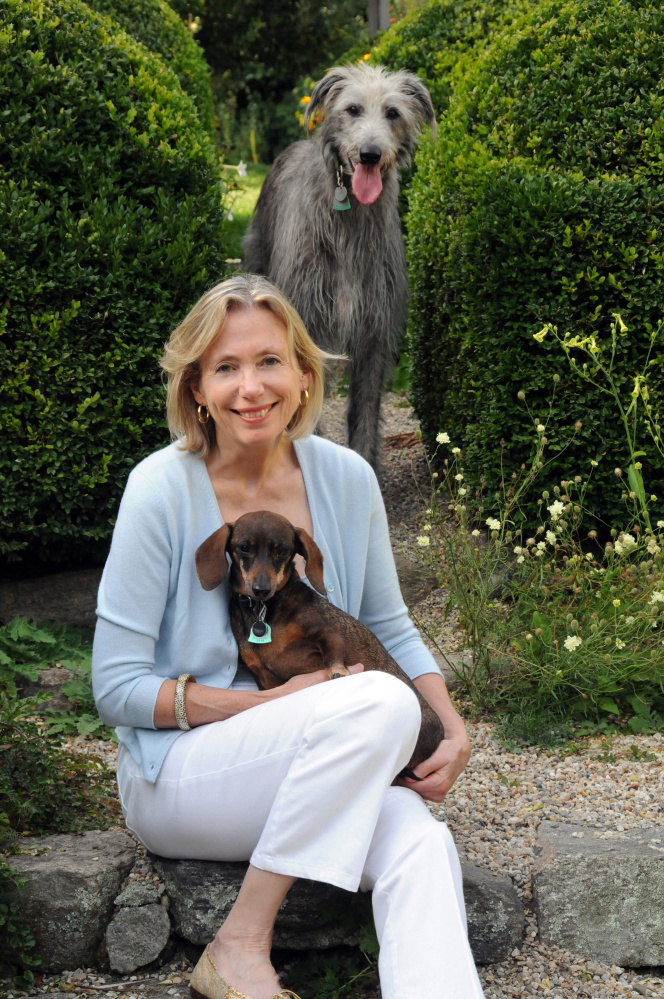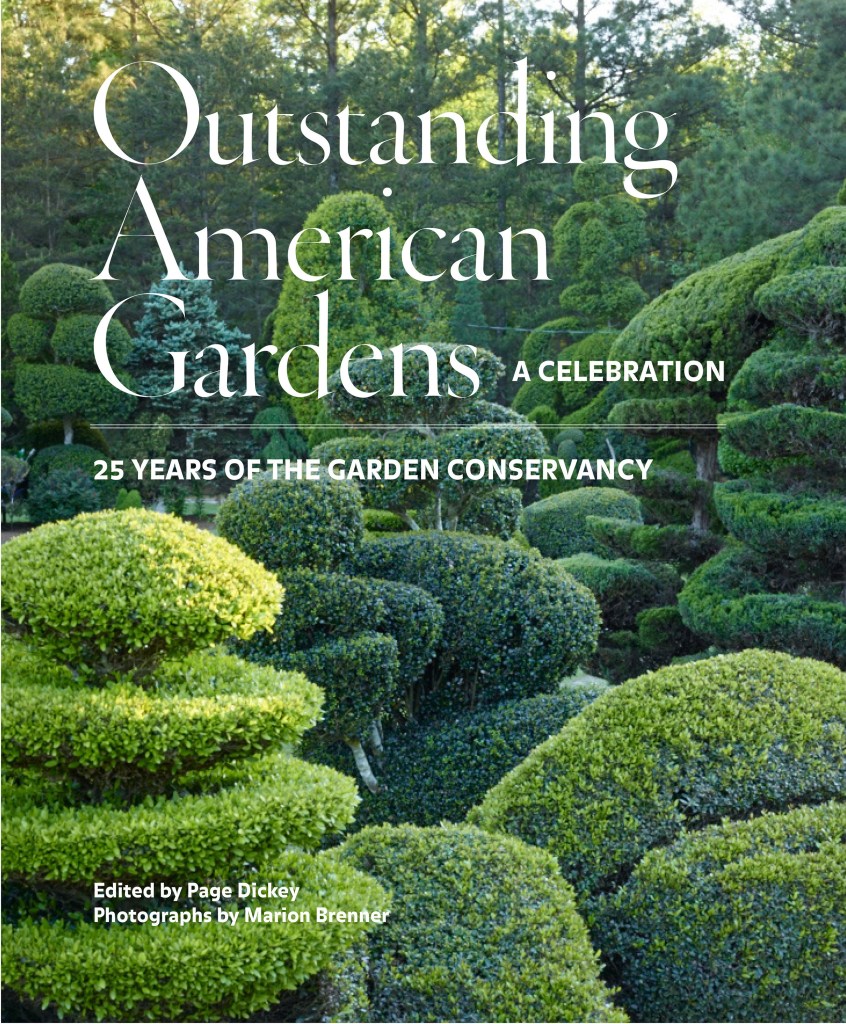When garden writer Page Dickey opened her private New York garden and coaxed 110 others to do the same for the Garden Conservancy’s first Open Days event – which allows visitors access to some of the finest private gardens across the country – little did she know that 20 years later she would be editing “Outstanding American Gardens,” a lavish volume showcasing many favorites among the 3,000 participating gardens. The book celebrates the garden preservation group’s 25th anniversary and its Open Days program.
“The whole idea of sharing a garden is magical,” says Dickey, who co-founded Open Days in 1995 with gardening friend Penelope Maynard.
“Being a gardener myself and working very hard on my garden to make it beautiful, there’s something thrilling about sharing it – especially with like-minded people,” says Dickey, whose Duck Hill garden in North Salem, New York (which she has since sold), is featured among the collection and includes design elements adopted from her own tours of notable American gardens.
“I’ve been a visitor for many, many years, and there is rarely a garden where you don’t learn something,” says Dickey. “By going around and seeing other gardens, it broadens your knowledge and vision.”
Inspired by England’s National Gardens Scheme charity garden tours, Dickey and Maynard organized the first Open Days tour as a fundraiser for the conservancy’s garden preservation projects.
“It was a smashing success,” says Dickey, “and went on to become a national program.” Thanks to hundreds of volunteers, the Garden Conservancy now has expanded Open Days to 20 states, stretched the schedule from March to November, and welcomed 75,000 guests. In “Outstanding American Gardens,” Dickey showcases 50 diverse gardens, including eight of the conservancy’s own preservation gardens. The coffee-table book is filled with spectacular photographs by Marion Brenner that let armchair gardeners experience their magnificence.
“That’s the beauty of American gardens – that there’s so much diversity,” she says. Diversity indeed. The gardens profiled in the book range in style from traditional – like the historic Charleston, South Carolina, garden of Chicagoans Cindy and Ben Lenhardt to contemporary desert ones like Ellen and John Stiteler’s colorful courtyard gardens in Phoenix; and vary in size from landscape architect Joseph Marek’s jewel box garden in Santa Monica, Calif., to sweeping estate gardens including three Chicago-area greats: Camp Rosemary in Lake Forest, Illinois; John and Neville Bryan’s Crab Tree Farm in Lake Bluff, Illinois; and Peggy and Jack Crowe’s walled garden in Lake Forest.
At Camp Rosemary, a passionate hands-on gardener (who wishes to remain anonymous) never tires of visitors as she annually opens her garden and its 21 garden rooms for the Open Days program.
“What’s the point of having all of this,” she tells Dickey in the book, “if you can’t share it?”
At Crab Tree Farm, Neville Bryan tends the boxwood-lined vegetable and cutting garden, while her husband, John, plays with vistas and follies on the 100-acre property overlooking Lake Michigan.
At the Pearl Fryar Topiary Garden in Bishopville, South Carolina, Dickey says artist Fryar used a chain saw and his extraordinary imagination to create Seussical-shaped topiaries from discarded shrubs. She says his goal was to “show that an African-American man could win the Yard-of the-Month award from the Bishopville Iris Garden Club.” Today, the garden, featured on the book’s cover, has far surpassed its original goal – not only spurring neighbors to create their own topiaries but also inspiring visitors from around the world.
Dickey says some ideas are born from natural disasters. When Hurricane Sandy brought down 50 trees on Ed and Vivian Merrin’s 7-acre garden in Cortlandt Manor, New York, she says Ed admired the beautiful roots of one of the big oak trees and said, “Let’s make lemonade out of lemons.” Thus, the stumpery of artfully arranged tree stumps was born.
Check out the Garden Conservancy’s 2016 Open Days schedule at http://bit.ly/23ruxrg.
Copy the Story LinkSend questions/comments to the editors.




Success. Please wait for the page to reload. If the page does not reload within 5 seconds, please refresh the page.
Enter your email and password to access comments.
Hi, to comment on stories you must . This profile is in addition to your subscription and website login.
Already have a commenting profile? .
Invalid username/password.
Please check your email to confirm and complete your registration.
Only subscribers are eligible to post comments. Please subscribe or login first for digital access. Here’s why.
Use the form below to reset your password. When you've submitted your account email, we will send an email with a reset code.